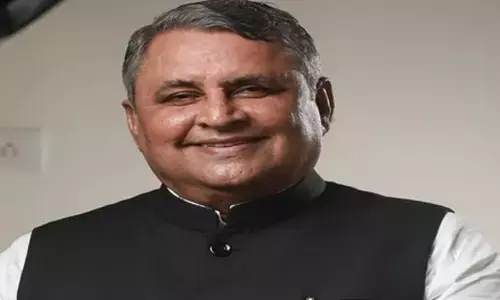India Achieves Major Milestone, Exits High-Burden Malaria Group

India exits the High-Burden-High-Impact malaria group as per WHO’s World Malaria Report 2023, with cases and deaths reduced by 69%.
India has exited the High-Burden-High-Impact (HBHI) group of malaria-endemic countries, according to the World Malaria Report 2023, released Wednesday. The report highlights India’s significant strides in reducing malaria cases and mortality, marking a pivotal achievement in the global fight against the disease.
Between 2017 and 2023, India reduced its malaria cases by 69 per cent, dropping from 6.4 million to 2 million. Similarly, malaria-related deaths fell by 69 per cent, from 11,100 to 3,500 during the same period. The World Malaria Report, an annual publication, evaluates progress and identifies gaps in malaria control efforts across 83 countries.
India’s achievements are credited to its robust multi-sectoral strategies and strong political commitment. “India’s reduction in malaria cases and deaths reflects its coordinated approach,” noted Dr. Daniel Madandi, Director of the Global Malaria Programme. However, he cautioned against complacency, stating that progress needs to accelerate to sustain these gains.
The Indian Council of Medical Research (ICMR) emphasized the critical role of Artemisinin-based combination therapy (ACT) and long-lasting insecticidal nets (LLIN) in achieving these outcomes. ACT employs a dual-action mechanism, where artemisinin targets and eliminates the majority of malaria parasites, while the partner drug ensures the clearance of residual parasites.
LLINs serve a dual purpose by preventing mosquito bites and killing mosquitoes upon contact with the insecticide-coated net. Studies show that when over half a community uses such nets, both mosquito population density and lifespan decrease significantly.
Interventions tailored to tribal and forested regions in states such as Jharkhand, Odisha, Chhattisgarh, and the North-East significantly enhanced malaria control. Enhanced access to diagnostics, treatment, and next-generation insecticide-treated nets have bolstered these efforts. According to the report, new-generation nets offer improved protection compared to traditional pyrethroid-only nets.
The introduction of rigorous monitoring and evaluation mechanisms has further streamlined case management. “Focused implementation in high-risk regions has been instrumental,” remarked a former director of ICMR-Regional Medical Research Centre, Gorakhpur.
Globally, the fight against malaria has shown encouraging results. Between 2000 and 2023, an estimated 2.2 billion cases and 12.7 million deaths were averted. Additionally, the rollout of newly approved malaria vaccines in various countries marks a significant step forward in prevention.
To date, the WHO has declared 44 countries and one territory malaria-free, with Egypt being the latest to join the list. Achieving this certification requires a country to demonstrate zero indigenous malaria cases for at least three consecutive years and the elimination of all four primary malaria parasite species.
Despite global progress, Africa remains disproportionately affected, accounting for the majority of malaria cases and deaths.
While India’s removal from the HBHI category is a commendable milestone, maintaining momentum is essential. Experts underline the importance of sustained funding, innovations in prevention and treatment, and continued focus on high-risk regions to ensure that malaria elimination goals are met in the coming years.










